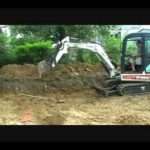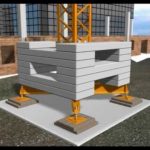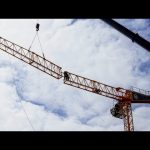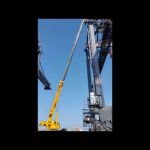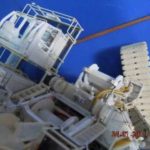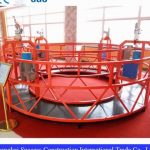A suspended platform, also known as a swing stage or suspended scaffold, is a type of adjustable, temporary platform used for working at heights. It is typically suspended from an overhead structure using ropes, cables, or chains and can be raised or lowered to the desired working level. Suspended platforms are commonly used for tasks such as window cleaning, painting, construction, and maintenance of buildings, especially high-rise structures.
These platforms are equipped with safety features such as guardrails, and workers are required to use personal protective equipment like harnesses to prevent falls. Suspended platforms offer flexibility and access to difficult-to-reach areas, making them an essential tool in many industries where work on vertical surfaces is required
At the food city 500 at bristol














